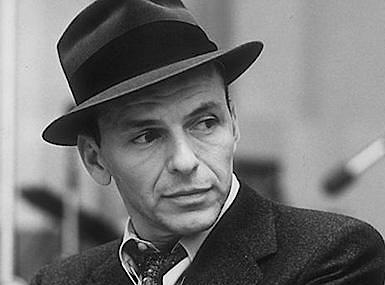Francis Albert “Frank” Sinatra was born on December 12, 1915, in Hoboken, New Jersey. He was an American singer, actor, director, film producer, and conductor. He dropped out of high school, where he was a member of the glee club, and began to sing at local nightclubs.
Radio exposure brought him to the attention of bandleader Harry James, with whom Sinatra made his first recordings, including “All or Nothing at All.” Sinatra made his movie acting debut in 1943, in Higher and Higher.
In 1945, he won a special Academy Award for The House I Live In, a 10-minute short made to promote racial and religious tolerance on the home front. Sinatra’s popularity began to slide in the post-war years, however, leading to a loss of his recording and film contracts in the early 1950s.
In 1951, Sinatra married actress Ava Gardner; after they split, Sinatra remarried a third time, to Mia Farrow, in 1966. That union, too, ended in divorce (in 1968), and Sinatra married for a fourth and final time in 1976, to Barbara Blakely Marx, the widow of comedian Zeppo Marx.
Sinatra is one of the best-selling artists of all time, having sold more than 150 million records worldwide.He was honoured at the Kennedy Centre Honours in 1983 and was awarded the Presidential Medal of Freedom by Ronald Reagan in 1985 and the Congressional Gold Medal in 1997.
Sinatra was also the recipient of eleven Grammy Awards, including the Grammy Trustees Award, Grammy Legend Award and the Grammy Lifetime Achievement Award. In 1965, he starred in what was considered one of his most successful films, Von Ryan’s Express.
His fourth and final Timex TV special was broadcast in March 1960, and earned massive viewing figures. Titled It’s Nice to Go Travelling, the show is more commonly known as Welcome Home Elvis.
Elvis Presley’s appearance after his army discharge was somewhat ironic; Sinatra had been scathing about him in the mid fifties, saying: “His kind of music is deplorable, a rancid smelling aphrodisiac.

On the other hand, he alternated such projects with much more serious offerings, such as The Manchurian Candidate (1962), regarded by many critics as Sinatra’s finest picture.
He made his directorial debut with the World War II picture None But the Brave (1965), which was the first Japanese/American co-production. That same year Von Ryan’s Express (1965) was a box office sensation.
In 1967 Sinatra returned to familiar territory in Sidney J. Furie’s The Naked Runner (1967), once again playing as assassin in his only film to be shot in the U.K. and Germany.
He was awarded 3 Stars on the Hollywood Walk of Fame for Motion Pictures at 1600 Vine Street, for Recording at 1737 Vine Street, and for Television at 6538 Hollywood Boulevard in Hollywood, California.
In 1953, he made a triumphant comeback, winning an Oscar for his portrayal of the Italian-American soldier Maggio in From Here to Eternity. On May 14, 1998, Frank Sinatra died of a heart attack at Los Angeles’ Cedars-Sinai Medical Centre.
He was 82 years old and had, at last, faced his final curtain. At his funeral, friends and family members placed items in his coffin that had personal references.